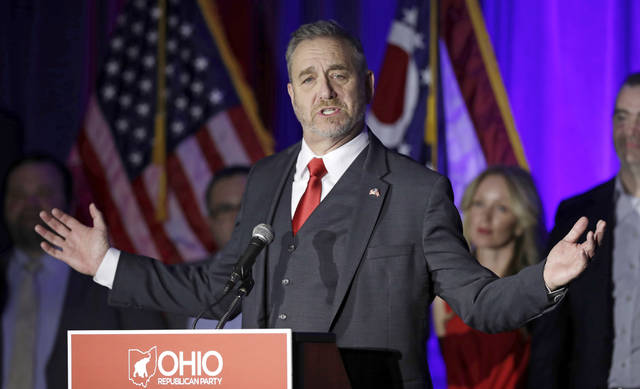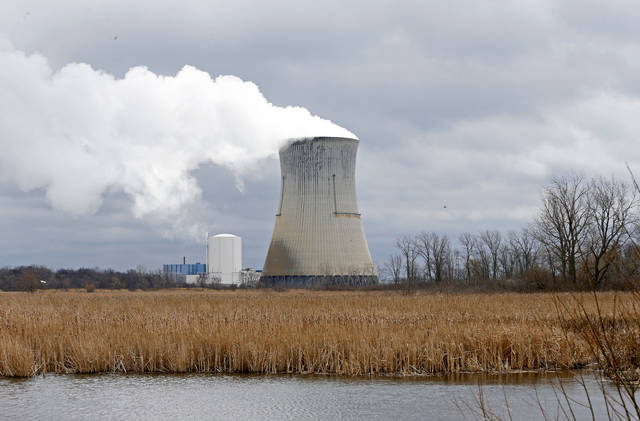

COLUMBUS (AP) — Ohio’s attorney general can’t block the state’s nuclear plants from collecting fees on electricity bills even though the law that authorized the bailout money is at the center of a $60 million federal bribery probe, a judge ruled Friday.
A Franklin County judge denied Attorney General Dave Yost’s attempt to stop Energy Harbor from receiving payments to the company’s two nuclear plants near Cleveland and Toledo that were bailed out through the now-tainted legislation.
The bailout is funded by a fee that will be added to every electricity bill in the state starting Jan. 1 — directing over $150 million a year, through 2026, to the two nuclear plants.
Energy Harbor is the former FirstEnergy Solutions, a onetime subsidiary of FirstEnergy Corp. The company said in a statement last week that the state’s lawsuit “unjustly targets the company for lawfully participating in the political process and advocating for policy that is consistent with our interests.”
The lawsuit also sought to freeze the assets of former House Speaker Larry Householder’s $1 million campaign fund and dissolve the dark money groups involved in the bribery scheme.
But Franklin County Common Pleas Court Judge Chris Brown noted in his ruling that blocking donations and other speech would be an infringement of the companies’ and individuals’ First Amendment rights.
“I don’t know that there’s any way, absent a judicial determination of criminal conduct, that I can prohibit future speech,” Brown wrote.
Yost said while he was disappointed in the outcome of the ruling, he appreciated the judge’s attention to the issues at hand.
The Republican attorney general brought the lawsuit last week, delivering on his promise to take the legal remedies necessary if the General Assembly could not do so in time.
The House created a committee in August to determine the fate of the legislation after federal prosecutors had accused Householder and four others of shepherding energy company money for personal and political use as part of an effort to pass the bailout bill, then kill any attempt to repeal it at the polls. All five men have pleaded not guilty.
The committee adjourned hearings Wednesday on the eve of the Oct. 1 deadline to repeal the law before 90% of the state’s electricity customers begin to see an added fee on their bills come Jan. 1.
However, Yost says the rejection of his preliminary injunction is not the end.
“The core of this complaint remains: the corrupt enterprise funded by First Energy that procured a billion-dollar money hose for its benefit,” Yost said in a statement. “Today was just a preliminary round. There’s a lot more yet to go.”
___
Farnoush Amiri is a corps member for the Associated Press/Report for America Statehouse News Initiative. Report for America is a nonprofit national service program that places journalists in local newsrooms to report on undercovered issues.



